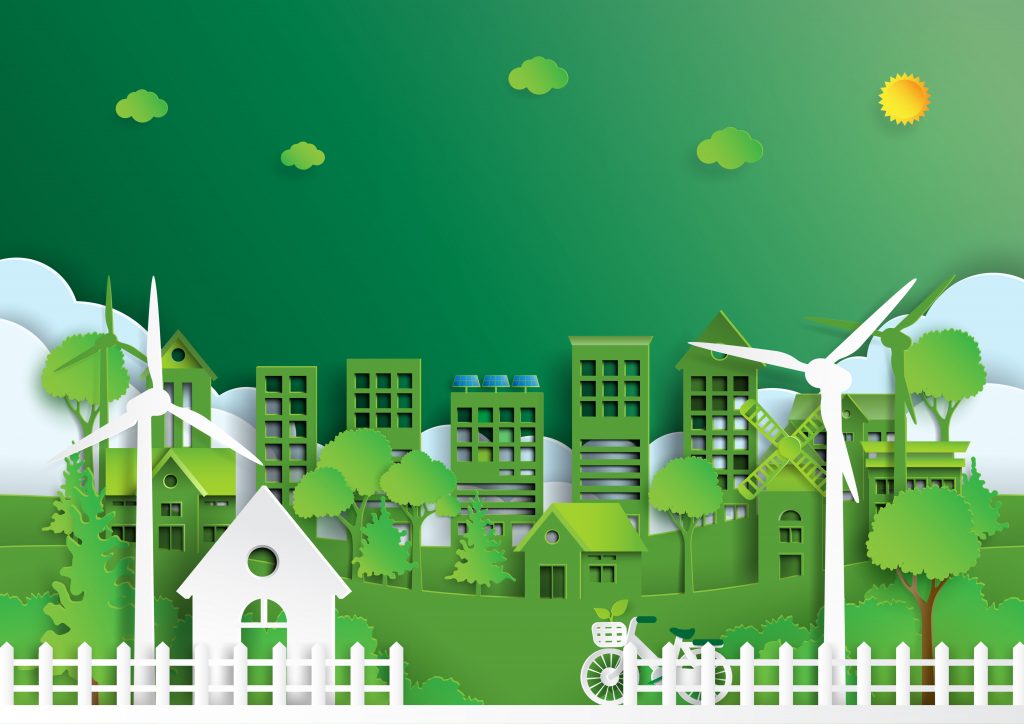Leases are going green!

Leases are going green!
Beyond the pandemic, environment and sustainability will be the key issues for the UK to tackle. In the context of the rental market, the introduction of green leases is just one of the ways in which landlords and tenants can create more environmentally friendly properties.
What is a green lease?
The term “green lease” is used to describe a lease that includes a range of environmental obligations agreed between a landlord and tenant. These obligations are usually aimed to encourage the landlord and tenant to reduce their environmental impact, in turn making the property more sustainable.
The Governments plan for Green Leases
One of the obligations included in a green lease may be to improve or maintain an existing energy efficiency standard of the building. By 2030, the government plan to enforce a minimum energy performance certificate of rating “B”. Most of the impetus in developing green lease agreements has historically emerged from the private sector, however, as the EPC deadline approaches many commercial landlords may seek to improve the energy performance of buildings with more force than previously seen.
How far do we have to go?
In London alone, approximately 20 million square feet falls short of the minimum EPC standard of E to be introduced in England and Wales in 2023, with only 20% of all properties currently classes as A or B on the EPC rating scale.
Deciding which environmental obligations to include in the lease
Most parties have chosen to focus on energy efficiency on the basis that this is a key component of tacking climate change however other obligations may include:
- Improving waste management;
- Ensuring that repairs and alterations are carried out using sustainable materials;
- Enhancing transport facilities such as bike racks; and
- Giving all parties the opportunities and facilities to host environmental forums to agree future targets and strategies.
If a landlord and a tenant decide to enter into a green lease both must commit to their joint objectives in minimising the environmental impact of the premises. Often by the time that heads of terms are agreed between the landlord and tenant, the environmental impact and sustainability of both the building and the tenant’s occupation are low on the agenda. However, a green lease requires a collaborative approach between parties in which communication, education, and cooperation are key. This will impact the service charge provisions, consent for alterations, reinstatement at the end of the term and remedies for breach of contract.
The severity of the obligations
Green lease commitments can range from soft to hard, often referred to as light green or dark green.
- Light green commitments – usually not legally binding or limited in scope
- Dark green commitments – legally binding, a substantial commitment and usually unlimited in scope.
When to negotiate the terms of a green lease
As with any lease, the terms of a green lease may be introduced before the lease has been granted or during the term of the lease.
Prior to the granting of the lease, the parties may mutually agree to environmentally conscious clauses that are enforceable under the lease. These may be specific in nature to allow for easier enforceability or broader in scope to commit parties to general principles rather than setting specific rules.
The parties may also agree to improve the sustainability of the lease during the term. Many leases require a tenant to comply with the regulations provided by the landlord. As these are often incorporated into the lease by reference they are legally binding and if a landlord chose to do so, they could amend the regulations without the tenant’s consent without scope to negotiate the terms. Alternatively, the landlord and tenant could agree to enter into a memorandum of understanding. This involves both parties giving the other a non-binding commitment to work together to improve the environmental impact of a property.
Contact our Real Estate Dispute Resolution team today
If you would like to discuss any issue relating to this blog, please do not hesitate to contact a member of the Real Estate Dispute Resolution Team on 01895 207835 or 01895 207295, or email us at propertydisputes@ibblaw.co.uk
